Lead like a pirate
“Every man has a vote in the affairs of the moment.”
You may think that this is some quote from one of America’s founding fathers or from a Greek philosopher speaking about democracy. Actually, it comes from a much less idealistic source. This quote is the first rule in Captain Bartholomew Roberts’ pirate code that guarantees a man’s right to participate in the selection of the captain and other officials on the ship. And while you may ask yourself, “What can I learn from a rugged, foul man with a peg leg and an eye patch?”, the truth is modern leaders can learn a lot from pirates.
I read many business and leadership books for both work and leisure. One subject they all have in common is that they write about “good” leaders and companies. But we are kidding ourselves if we think that only moral people make “good leaders”. The reality is that many effective leaders are unsavoury people. Pirates, dictators, cult leaders: all have committed horrible acts while effectively leading their organizations.
For this reason, a few times this year, I will be writing articles to examine what we can learn from “bad” people who at the same time were effective leaders. At a bare minimum, it should be more interesting than reading another article on the creative genius or the business management skills of esteemed individuals. So I hope you enjoy this “Bad” Leadership series.
Lead like a pirate
Captain Bartholomew Roberts
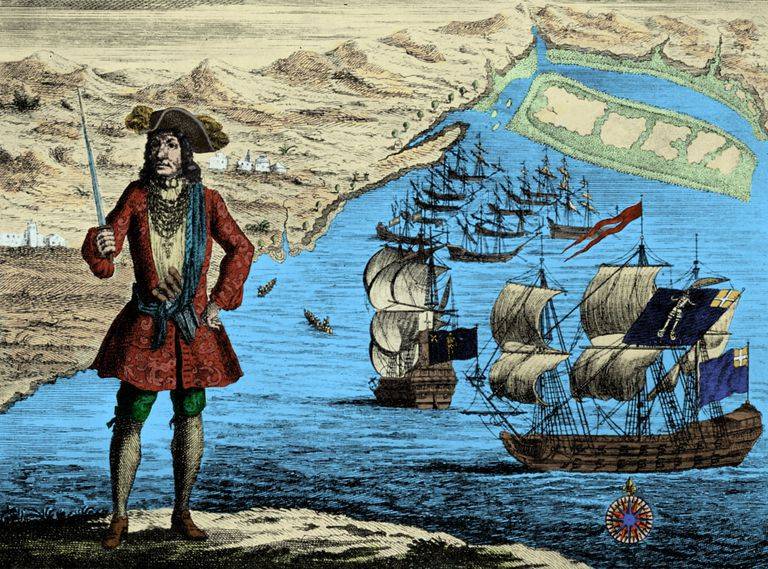
Little is known of the early life of Captain Bartolomew Roberts other than in 1682 he was born in Wales with the birth name, John Roberts. At the age of 13, he went to sea and worked primarily on slave ships. In June of 1719, after his ship was captured by pirates, he was forced to join the pirate crew. Roberts was said to be a reluctant convert to the piratical way of life, but eventually he began to see the advantages of the liberty and power that being a pirate provided. He quickly became a valued member of the crew, most likely due to him serving under another Welsh captain.
His new life as a pirate was not without risk. A few months after his capture, the captain onboard was killed in a raid. The crew, following the rules of their ship, held new elections. Surprisingly, Roberts was elected the new captain (Historians think it was due to his navigational abilities). Almost immediately, Captain Roberts led the crew to avenge the death of the previous one, plundered the island of Principe, and captured two merchant ships.
Captain Roberts may have started as a reluctant pirate, but he grew to become the most successful one during the Golden Age of Piracy (1650s-1730s). Ultimately, he captured over 400 vessels without wavering from his views on crew empowerment. His crew continued to vote on their strategic destinations and the running of the ship. Captain Roberts wasn’t a dictator whipping his crew into shape. He treated them like they were his equals: he was one of them.
Lead like a pirate
Pirates were democratic before America
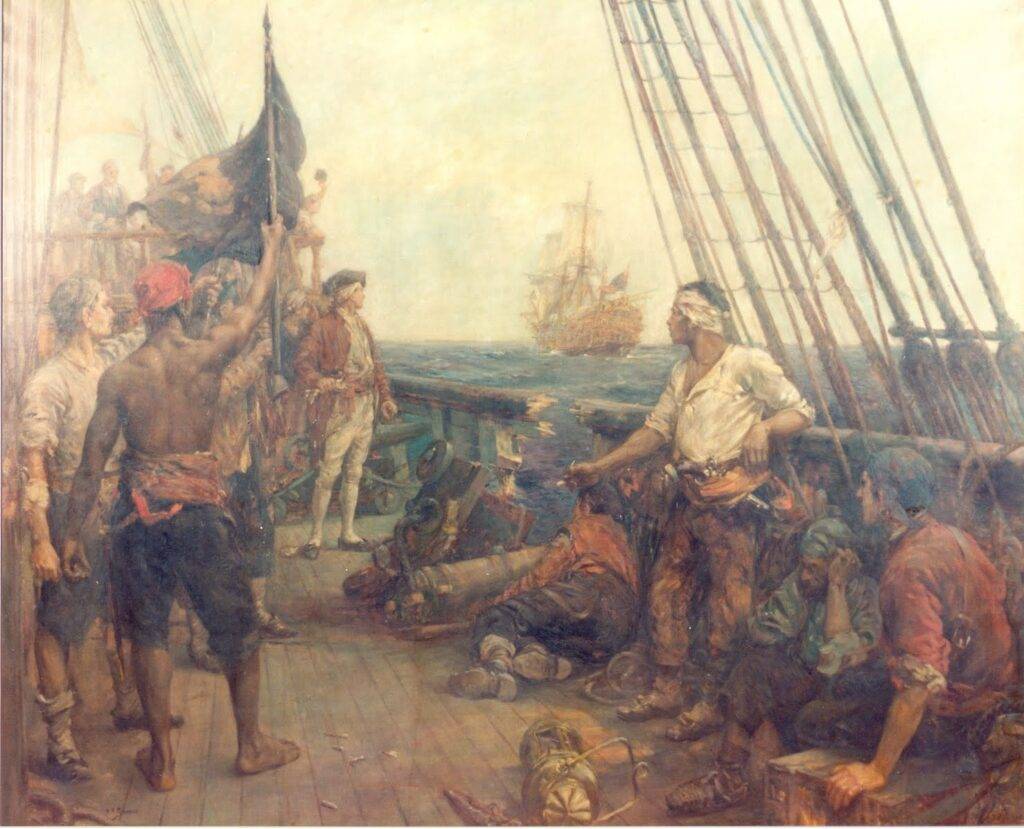
Captain Roberts’ ship was incredibly democratic in how it ran, but what is surprising is that almost all pirate ships were run this way. I had previously thought of pirate captains ruling with an iron first, choosing to shoot first and ask questions later. But the reality was that the majority of pirate ships elected their captains and leaders. Every member of the crew had an equal vote in who was going to lead them. And just as surprisingly, a leader could be voted out by the crew.
In essence, staying at their post was dependent on what their crew thought. Plans on where to sail next and strategies on whom to attack next were not solo decisions the captain could just take himself. He needed to engage his crew, and together, they would vote on all big decisions. These leaders did not think of themselves as task masters or authoritarians, or distinct from the people they were leading. Pirate captains considered themselves as leaders among equals.
I think this attitude should be emulated by modern day leaders. Too many treat their leadership roles as giving them total power. “I’m the boss, so people will need to do what I say.” But this wasn’t the piratical way. Pirate captains had to convince their crews that their strategies or plans were the right ones. They had to communicate in a way that gained followers. It was much more leadership through inspiration rather than rank or title.
How often do your senior leaders seek input on strategic decisions from front-line employees? Does your team make strategic decisions by building alignment with team members? And if your team is aligning around strategic decisions, how much input and feedback are you gathering from the teams below yours? If your company is like most, you probably aren’t seeking input on your strategy from all levels within the company.
Lead like a pirate
What does listening to all employees look like?

Even though most companies don’t do it, it is possible to engage all employee levels in making important decisions. My current company, Unity Technologies, is an interesting example. The culture at Unity is one where everyone feels like they can (and should) give their opinion. When our CEO or any of the other senior leaders communicate a strategic decision, employees immediately start giving feedback directly to the leaders through online ‘Slack’ channels. Anyone who wants to participate can debate the pros and cons of the decision. Senior leaders take these debates very seriously and actively participate.
I have experienced these kinds of discussions in other companies, but often they were just between me and my colleagues and would never involve senior leadership. We would talk about how great the idea was, or how it was the dumbest idea ever. A lot of people would join the conversation, but our feedback never reached the decision makers, and they certainly never cared enough to ask.
What I find interesting is that the senior leaders at Unity are actually willing to change their decisions based on these online discussions. They use these discussions to discover new ideas or unknown information. And it’s not just small decisions that have been changed this way: employee discussions have changed some of Unity’s multi-year strategic decisions.
Lead like a pirate
If you can’t involve teams globally, at least involve them locally

Now some of you may already be questioning the feasibility of involving more people in strategic decision-making. In a small startup, everyone can be gathered in a meeting room to hash things out, but in a large company this kind of involvement could be impossible or impractical. Additionally, not everyone has all the required information to make informed decisions. For example, you might wonder what kind of insight a front-line employee could provide to your company’s 3-year expansion / acquisition strategy.
These kinds of critiques aren’t necessarily wrong, but even when a decision is close to home and within a team’s expertise, companies will often use a top-down approach. For example, most companies utilize a very top-down hiring process. Senior leaders are the ones who interview candidates for management roles, and in some cases potential peer-level colleagues will also interview the candidates. But, employees almost never interview their future managers.
I think this is a wasted opportunity. Team members do not get a voice in hiring the person that will significantly impact their immediate future. And it shouldn’t surprise you that people are less committed to decisions or ideas where they don’t have a say. Excluding them from the process is an easy way to disempower and disengage the team.
Lead like a pirate
The fate of Captain Roberts
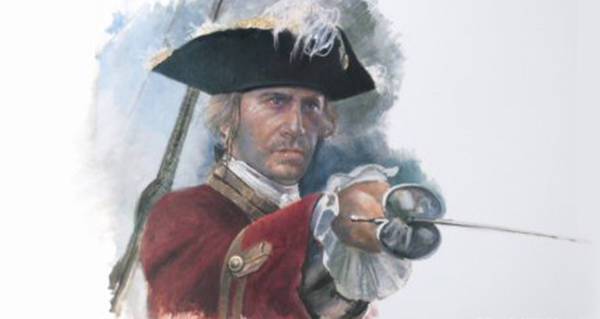
On February 10, 1722, only 3 years into his pirate captaincy, Roberts’ ship went into battle with the British HMS Swallow. As he normally did before a battle, Roberts dressed himself in his finest clothes. At the time of the engagement he wore “a rich crimson damask waistcoat and breeches, a red feather in his hat, a gold chain round his neck, with a diamond cross hanging to it, a sword in his hand, and two pairs of pistols slung over his shoulders.”
The reason he dressed so elaborately was that he didn’t hide during battles. He wasn’t the general guiding his troops miles away from the battlefield. Captain Roberts considered himself a leader among equals, and so he lead from the frontlines. He chose his clothes because they were more visible. He wanted his crewmates to see him, and to show his enemies, hopefully how confident he was. Maybe the fiery image of Roberts might sway a few hearts one way or the other.
As he was trying to capture another ship, grapeshot killed Captain Roberts. As per his requests, he was buried at sea and his body was never found. The battle in which Captain Roberts dies “proved to be a turning point in the war against the pirates off the coast of Africa, and many consider Roberts’ death to mark the end of the Golden Age of Piracy.”
Lead like a pirate
Leading your team like a Pirate Captain
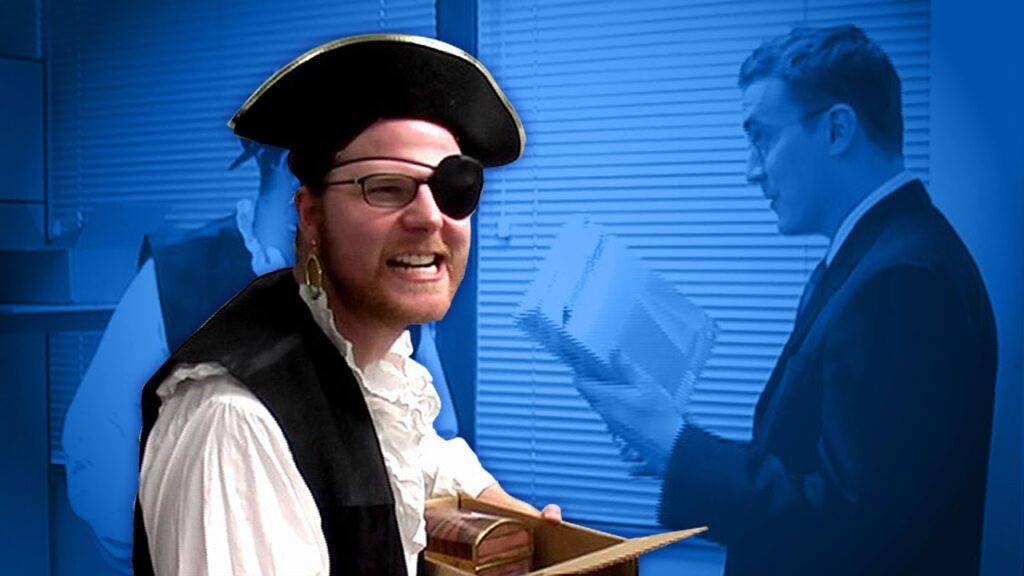
There are numerous reasons for condemning the morals of Captain Roberts and other pirates, but empowering their crew and giving them a voice are not two of them. On military ships or merchant vessels, crews were treated a little better than service animals. A sailor was just another cog in the wheel, but on pirate ships, every sailor was a co-owner. They committed themselves to the ship, to its leader, and to its mission, because they had a voice in the key decisions.
Captain Roberts would never have risen from the ranks to become the feared “King of the Sea” if crew members just acted like subordinates. Instead, they acted like co-owners, and they committed to the shared success of their ship. This shouldn’t surprise anyone. The current best selling business books and thought leader podcasts say it as well. Businesses will be a lot more successful if their employees start thinking and acting like owners.
But if leaders aren’t giving their employees an opportunity to be heard, they will never think of themselves as anything more than a cog in a much larger machine. If you want people with real ownership mentality, then you need to be like Captain Bartholomew Roberts. Empower your people like a true pirate captain, and give them back their voice!
Lead like a pirate
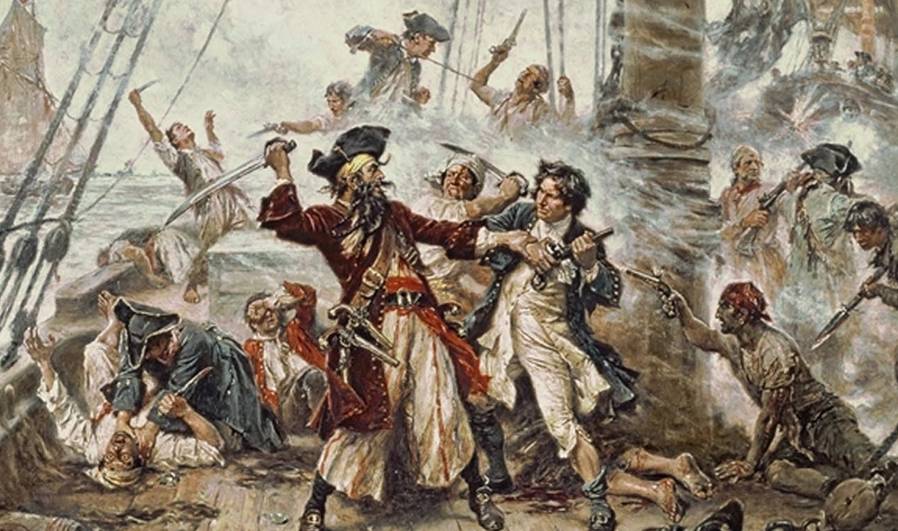
Leave a Reply